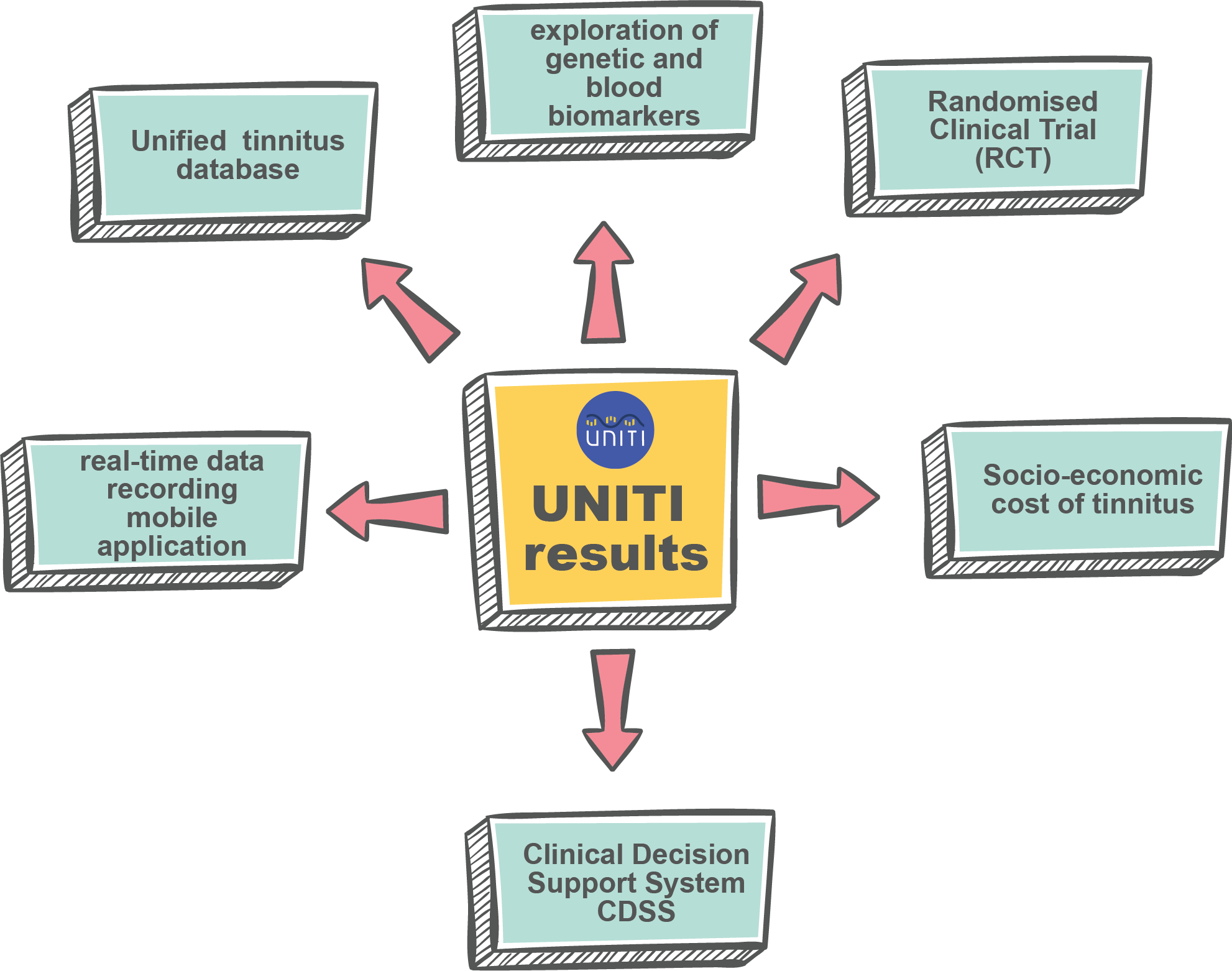UNITI’s overall aim was to deliver a predictive computational model based on existing and longitudinal data attempting to address the question which treatment approach is optimal for a specific patient based on specific parameters. Clinical, epidemiological, medical, genetic and audiological data, including signals reflecting ear-brain communication, were analysed from existing databases. Predictive factors for different patient groups were extracted and their prognostic relevance were tested in a randomized controlled trial (RCT) in which different groups of patients underwent a combination of therapies targeting the auditory and central nervous systems.
The UNITI project is now finished and has successfully met all its objectives and milestones within the designated period and delivered results that carry significant impact. The results of the UNITI project hold scientific and technological relevance. All specific objectives of UNITI have been fulfilled, encompassing:
- the exploration of genetic and blood biomarkers,
- the establishment of a unified database,
- a real-time data recording mobile application for each patient,
- the execution of the Randomised Clinical Trial (RCT) with corresponding data analysis,
- the assessment of the socio-economic cost of tinnitus,
- the development of a Clinical Decision Support System (CDSS) with two cores and an in-silico model.

What comes next?
In order to make sure that the UNITI knowledge will be sustained and widely exploited to European stakeholders and that appropriate actions will be made in order to explore the sustainability, business and replication potential of the UNITI tools, we propose the development of a Working Group that will take up the results, will continue working in the UNITI area and will focus on sustaining UNITI results.
The UNITI Working Group (in brief UNITI WG) is a group of individuals (under the umbrella of the UNITI project) who are interested - from a scientific and practical point of view - on the topics that were addressed by the UNITI project throughout its whole duration.
